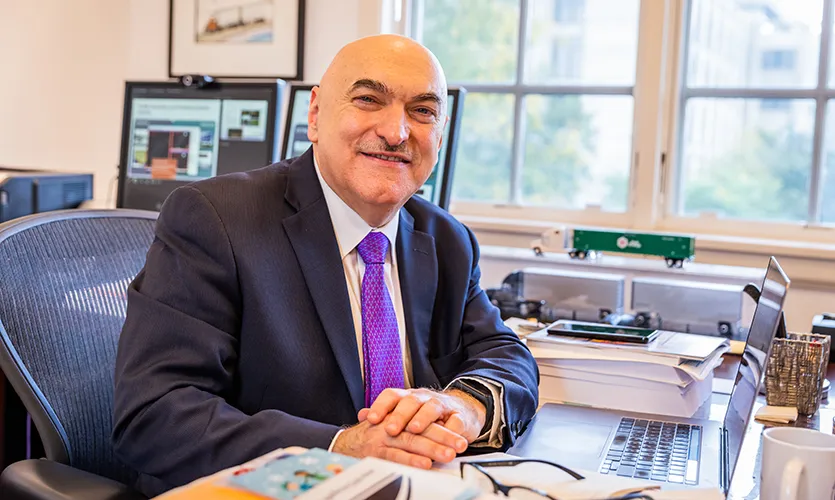A team of scientists at the University of Huddersfield, led by Dr Mauro Vallati of its Department of Informatics has won a prize for its research into the use of artificial intelligence (AI) as a way of keeping the traffic flowing. The second Autonomic Road Transport Systems competition which took place under the aegis of the long-running EU-backed research framework named European Co-operation in Science and Technology (COST).
Dr Vallati formed a team with two fellow researchers in the field whom he h
November 13, 2015
Read time: 2 mins
A team of scientists at the University of Huddersfield, led by Dr Mauro Vallati of its Department of Informatics has won a prize for its research into the use of artificial intelligence (AI) as a way of keeping the traffic flowing. The second Autonomic Road Transport Systems competition which took place under the aegis of the long-running EU-backed research framework named European Co-operation in Science and Technology (COST).
Dr Vallati formed a team with two fellow researchers in the field whom he had worked with previously,Dr Daniele Magazzeni of King’s College London and Professor Bart De Schutter of Holland’s Delft University of Technology. The trio developed a road traffic support system software package especially for the COST competition, but it drew on existing work by the university’s planning, autonomy and representation of knowledge (PARK) project and will feed into the ongoing Greater Manchester project.
The PARK team, headed by Professor Lee McCluskey, is developing a system that can control huge areas of a city’s transport network, populated by upwards of 10,000 vehicles. Cameras and sensors feed data to a computer which makes its own decisions, such as the duration of green light phases at traffic lights. McCluskey chairs the COST sub-project Towards Autonomic Road Transport Support Systems.
A simulation has been tested for Greater Manchester, and the next phase is to develop the system using real-life data supplied by that city’s transport authority.
The researchers claim its breakthrough is scaleability, meaning that it has the potential to control large areas of road traffic. The contest organisers also sought evidence of system resilience and the capacity to respond to a wide range of events.
“The goal of autonomic transport systems is to reduce reliance on decision-making by human controllers,” said Dr Vallati. “Improved traffic flows would lead to wide range of environmental and economic benefits.”
Dr Vallati formed a team with two fellow researchers in the field whom he had worked with previously,Dr Daniele Magazzeni of King’s College London and Professor Bart De Schutter of Holland’s Delft University of Technology. The trio developed a road traffic support system software package especially for the COST competition, but it drew on existing work by the university’s planning, autonomy and representation of knowledge (PARK) project and will feed into the ongoing Greater Manchester project.
The PARK team, headed by Professor Lee McCluskey, is developing a system that can control huge areas of a city’s transport network, populated by upwards of 10,000 vehicles. Cameras and sensors feed data to a computer which makes its own decisions, such as the duration of green light phases at traffic lights. McCluskey chairs the COST sub-project Towards Autonomic Road Transport Support Systems.
A simulation has been tested for Greater Manchester, and the next phase is to develop the system using real-life data supplied by that city’s transport authority.
The researchers claim its breakthrough is scaleability, meaning that it has the potential to control large areas of road traffic. The contest organisers also sought evidence of system resilience and the capacity to respond to a wide range of events.
“The goal of autonomic transport systems is to reduce reliance on decision-making by human controllers,” said Dr Vallati. “Improved traffic flows would lead to wide range of environmental and economic benefits.”










